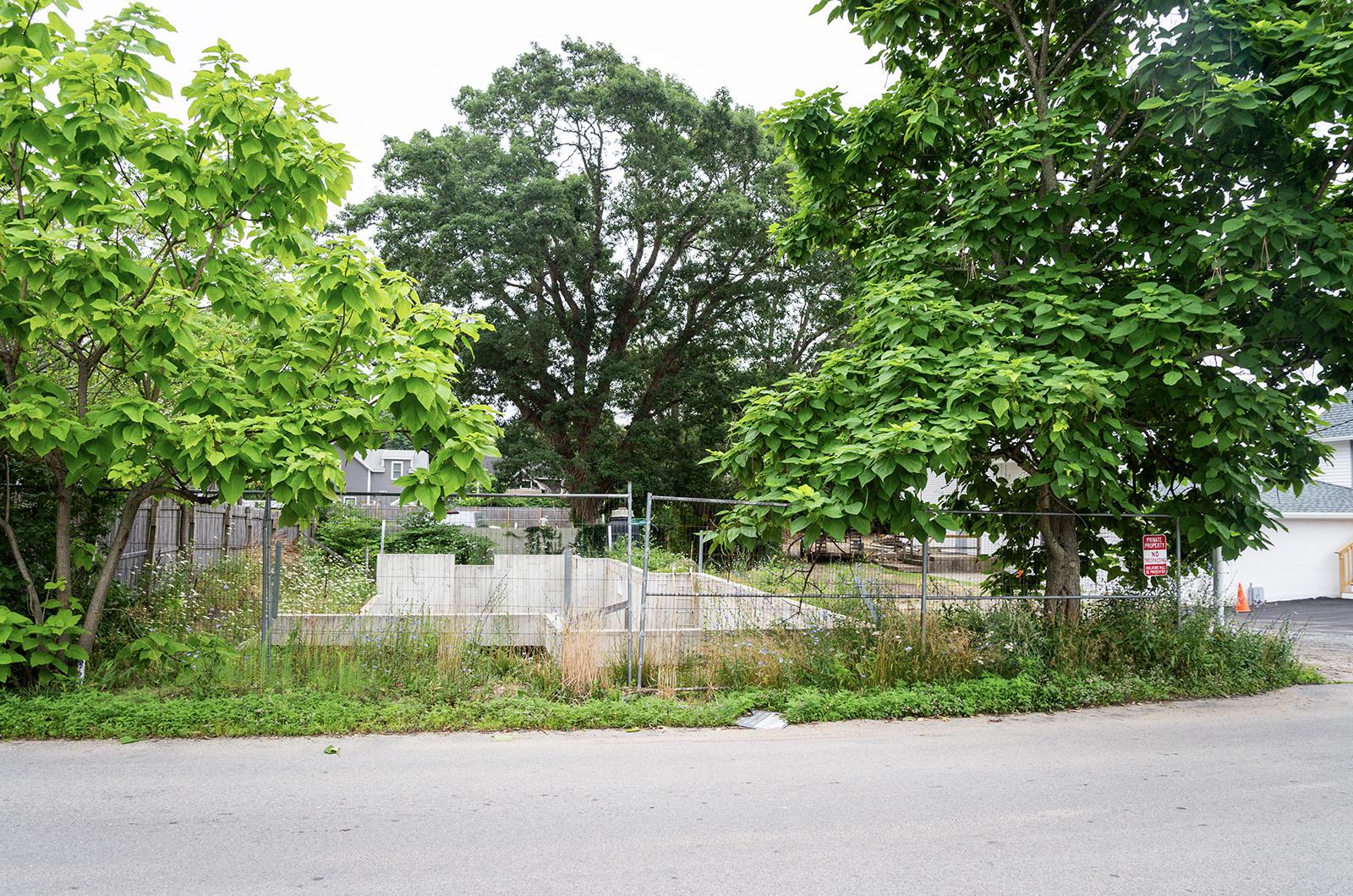The Vineyard’s only homelessness prevention nonprofit is under agreement to buy 112 Dukes County avenue in Oak Bluffs, where — if local and regional authorities approve — it plans to build a permanent winter shelter for up to 25 guests.
Harbor Homes of Martha’s Vineyard has been renting space for the shelter at Martha’s Vineyard Community Services over the past three winters, but the building is scheduled for demolition next February as part of a campus-wide overhaul at Community Services.
“There’s an urgent need to find a permanent location,” Harbor Homes board chair Jennifer Frank said this week.
The property is largely undeveloped, aside from an open basement installed by the current owner. Though she could not disclose the price, Ms. Frank said her organization is seeking funding to add a two-story homelessness prevention center atop the basement at the Dukes County avenue property.
“[The owner] planned on building a commercial and residential building for his business, with two apartments upstairs, [but] he decided not to go through with the project,” she said.
In addition to housing the winter shelter, the proposed Harbor Homes center would also provide educational and support services aimed at helping people transition out of homelessness, Ms. Frank said.
“It will have one room for the men’s shelter guests and one room for the women’s shelter guests, a year-round educational center and office spaces for two to three staff members,” she said.
From May 1 to Oct. 31, Ms. Frank said that the Harbor Homes center will provide educational programs from 10 a.m. to 2 p.m., Monday through Friday.
“We will offer things like mindful meditation . . . English as a second language courses [and] Wednesday Wellness, which focuses on total body health and nutrition,” she said.
“We always offer year-round homeless prevention outreach and any consultation [and] we offer job assistance through online searches in local papers, resume building and interview coaching,” Ms. Frank said.
Harbor Homes officials have been scouring the Island for property the nonprofit can afford, and this is not the first time they have zeroed in on a promising shelter location. Last fall, amid strong opposition from neighbors, Harbor Homes withdrew plans to buy a workers’ dormitory and apartment building on Hudson avenue in Oak Bluffs.
The parcel that is now under agreement on Dukes County avenue is near Tony’s Market and the Black Joy commercial kitchen and directly next door to a complex purchased last year by Island Grown Initiative as the future permanent home of the Island Food Pantry.
“The work of Harbor Homes is critically important,” Island Grown co-executive director Noli Taylor said in an email Wednesday.
“We are proud to be one of their organizational partners [and] we wish them all the best in this next phase of making much needed year-round shelter space a reality,” wrote Ms. Taylor, noting that Island Grown plans to move the food pantry to 114-116 Dukes County avenue later this year.
Other potential neighbors of the planned shelter will be able to have their say on the proposal as it makes its way through the local permitting process, which is expected to begin soon. Oak Bluffs officials also have the power to refer the project to the Martha’s Vineyard Commission as a development of regional impact, which would require further public hearings.
Harbor Homes of Martha’s Vineyard was formed in 2017 to create group homes for Islanders whose incomes are too low to qualify them for public housing.
In 2020, the organization purchased and opened a home for six men in Vineyard Haven, followed by a women’s residence in Oak Bluffs that opened in late 2021. Harbor Homes took over running the winter shelter program from a group of Vineyard clergy, who began opening their church halls on a rotating basis for overnight stays following the death of an unsheltered Islander.
Last year was the busiest in Harbor Homes history, with a total of 54 individual Islanders using the shelter for at least one night. By comparison, the 2022–2023 shelter season saw fewer than 40 individual guests.
More than half of the shelter guests this past winter were regularly employed on the Island, but did not earn enough to afford a place to live, shelter manager Lisa Belcastro told the Gazette in April.
Out of 15 people who slept at the shelter on its final night, she said, just two had found other housing.







Comments (4)
Comments
Comment policy »